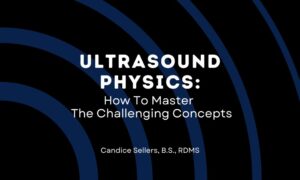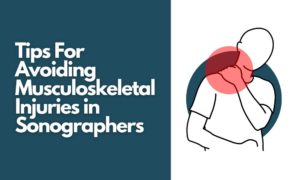A high-risk pregnancy means there is a greater chance the baby or mother will experience such problems as abnormal fetal development, early (premature) labor and placenta previa.
Numerous factors characterize a high-risk pregnancy, such as the mother has a pre-existing health condition (like diabetes, chronic hypertension, epilepsy, kidney disease, sickle cell anemia, lupus or cancer); is older than 35; is pregnant with multiples (like twins or more); smokes, drinks or uses drugs; has a pregnancy history of several miscarriages, early labor or preeclampsia; has a family history of genetic conditions or the baby has already been diagnosed with a genetic condition…
Women with high-risk pregnancies usually have more ultrasounds, and exams that are more targeted or detailed, compared to those not at risk. Sonographers who perform these exams must be specialized in high-risk obstetrics so that they understand the associated health problems and concerns and are able to work with patients (who may be quite distressed or worried) in a compassionate manner.
Sonographers and High Risk Pregnancies
Sonographers who specialize in performing ultrasounds for high risk pregnancies may be called: Perinatal Sonographers, Perinatology Sonographers, and High Risk OB (Obstetric) Sonographers, among other titles.
These specialized sonographers work under the direction and present their findings to the patient’s physician, obstetrician, perinatologist, OB/GYN or other Maternal Fetal Medicine specialist (depending on the workplace). In addition to performing accurate, high quality ultrasound exams and having a firm knowledge in physiology and anatomy relevant to obstetrics, the perinatal sonographer must be a continuous learner.
A recent job posting from St. Louis Park, Minnesota, perhaps describes the position best: “…it is the responsibility of this [sonography] department to very carefully screen for prenatal detection and diagnosis of anomalies so the perinatologist can offer final recommendations that potentially improve the outcomes of the pregnancy.”
Qualifications
Qualifications naturally vary by position/employer, but some common requirements to becoming a high-risk OB sonographer might include:
- Completion of an accredited sonography degree
- Sonography Certification (i.e. RDMS with an OB/GYN specialty)
- Licensure (if required by your state)
- CPR Certification
- Several years experience as a sonographer and also experience with high risk pregnancy ultrasounds
- Knowledge of fetal development and pregnancy conditions.
- Commitment to continuing education
Stand Out from the Crowd
If you are striving to specialize as a perinatal sonographer there are some extra courses and certifications you can pursue. Some may even be required or highly preferred by prospective employers. Either way, completing further training demonstrates your commitment to lifelong learning.
Examples of ways to increase your expertise and employability include:
- Certifications in First Trimester Screening and Nuchal Translucency Ultrasound
- Experience/training/certification in Fetal Echocardiography (such as RDCS certification with a specialty in Fetal Echocardiography certification through the ARDMS)
- Attending conferences related to OB/GYN and high-risk pregnancy ultrasounds.
- Fulfilling required CME credits by selecting courses related to obstetrics and high-risk pregnancies.
High risk OB sonographers play a valuable role. Philip Samuels, MD, in his paper “Sonography of Medical Conditions During Pregnancy” wrote:
“In a complicated pregnancy in which the patient receives frequent sonograms, the sonographer and the patient often establish a rapport and the patient develops a trust in the sonographer. Often, in conversation, the sonographer can glean information that is crucial in helping the physician provide appropriate care for the patient. It is important, therefore, that the sonographer understand the pathophysiology of the common medical diseases that may have an impact on pregnancy outcome. In this way, the sonographer can individualize the exam to provide the physician with the most useful clinical information, and can simultaneously listen for verbal clues that may impact health care.”
Visit our career center to learn more about becoming an Obstetric Sonographer.
Resources:
- https://www.ardms.org/get-certified/rdms/obstetrics-gynecology/
- https://www.hopkinsmedicine.org/gynecology_obstetrics/specialty_areas/maternal_fetal_medicine/
- https://wexnermedical.osu.edu/







